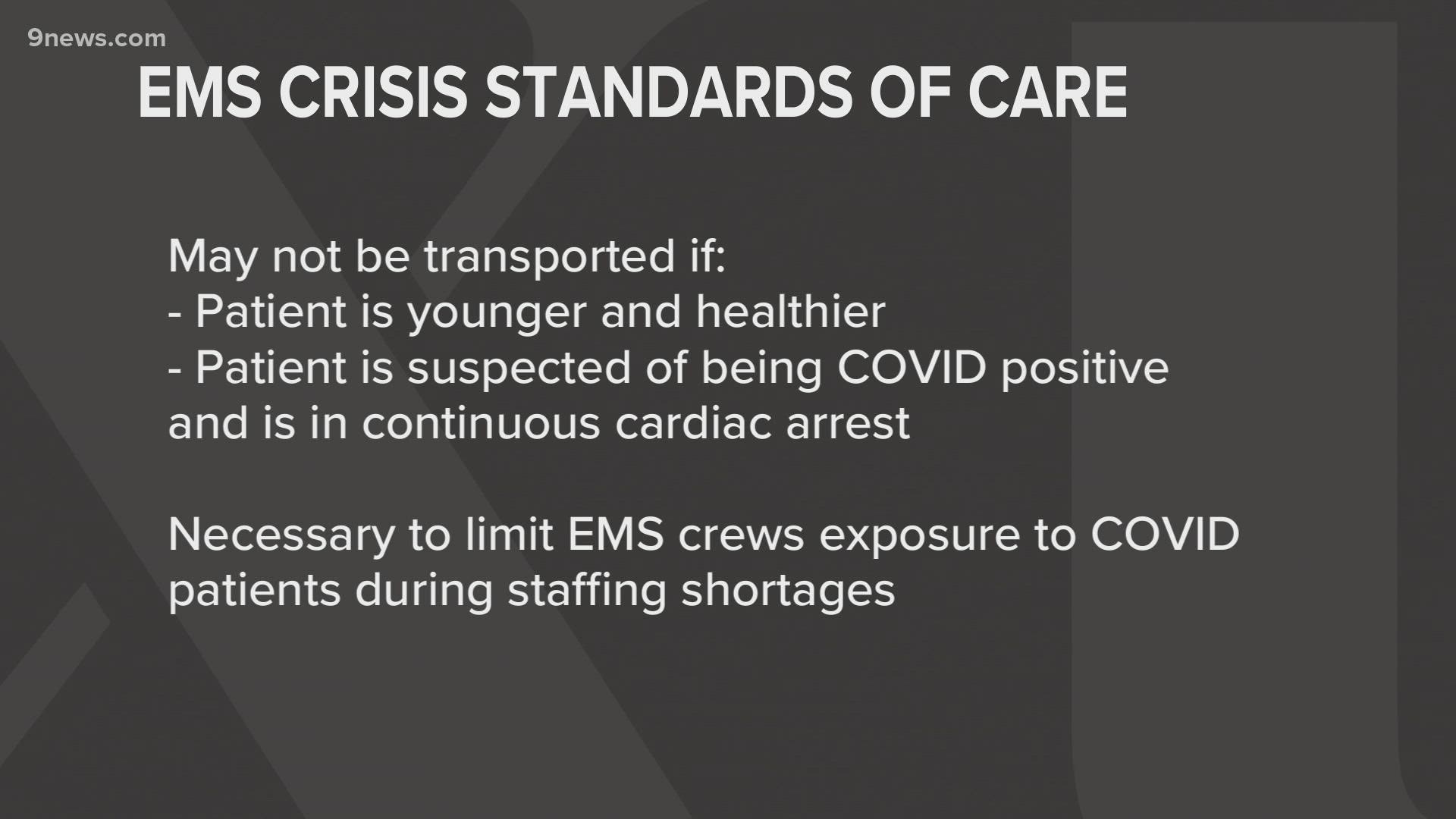DENVER — Responding to a strain on emergency medical services (EMS), Colorado has activated a "crisis standards of care" plan that enables various health care systems to decide how best to treat patients.
Many EMS staff members are out currently out sick, the state said Friday afternoon. Additionally, employees still able to work are managing a high demand for patient transports.
Under this crisis standards of care protocol, ambulances may not be dispatched on as many calls, and suspected COVID patients in continuous cardiac arrest will not be transported to hospitals.
"Patients in cardiac arrest with an initial rhythm of ventricular fibrillation should have limited efforts at resuscitation including CPR, electrical defibrillation and ACLS drugs," per the crisis standards of care guide.
The guide also directs EMS to transport only the most severe cases. Criteria for not transporting someone includes whether the patient is younger than 60, absence of high-risk medical history and whether the patient is experiencing respiratory distress.
You can read about the full scope of the protocol here.
Colorado last implemented this level of crisis standards of care in April 2020. It does not currently apply to hospitals.
“With increasing demands on hospitals and EMS, we need to make sure we can provide care to anyone who needs it immediately," Dr. Eric France, the chief medical officer with the Colorado Dept. of Public Health and Environment, said in a news release. "Crisis standards of care help us to do that. We also need every Coloradan over the age of 5+ to get vaccinated so we can lessen the strain on our healthcare system and protect everyone.”

